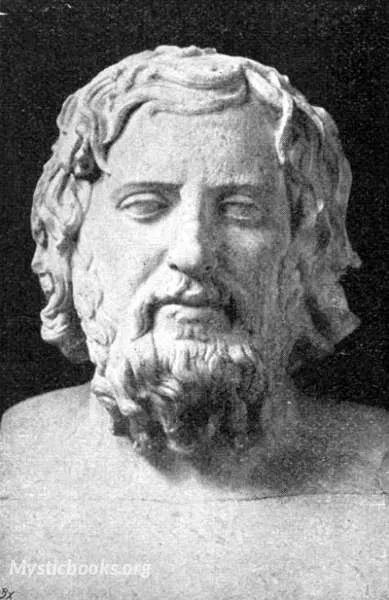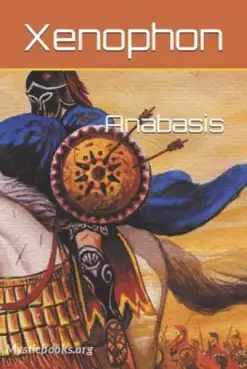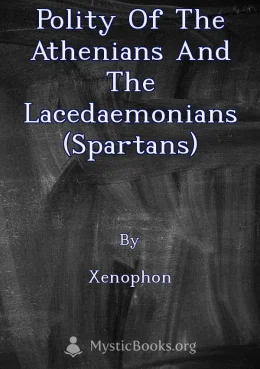
Timeline
Title
Country/Nationality
Xenophon
Xenophon of Athens was an Athenian-born military leader, philosopher, and historian. At the age of 30, Xenophon was elected a commander of one of the biggest Greek mercenary armies, the Ten Thousand, marched on and came close to capturing Babylon in 401 BC. As the military historian Theodore Ayrault Dodge wrote, "the centuries since have devised nothing to surpass the genius of this warrior". Xenophon established precedents for many logistical operations, and was among the first to use flanking maneuvers and feints. Xenophon's Anabasis recounts his adventures with the Ten Thousand while in the service of Cyrus the Younger, Cyrus's failed campaign to claim the Persian throne from Artaxerxes II of Persia, and the return of Greek mercenaries after Cyrus's death in the Battle of Cunaxa. Anabasis is a unique first-hand, humble, and self-reflective account of military leader's experience in antiquity. On the topic of campaigns in Asia Minor and in Babylon, Xenophon wrote Cyropaedia outlining both military and political methods used by Cyrus the Great to conquer the Neo-Babylonian Empire in 539 BC. Anabasis and Cyropaedia inspired Greeks and Alexander the Great to conquer Babylon and the Achaemenid Empire in 331 BC.
A student and a friend of Socrates, Xenophon recounted several Socratic dialogues – Symposium, Oeconomicus, Hiero, a tribute to Socrates – Memorabilia, and a chronicle of the philosopher's trial in 399 BC – Apology of Socrates to the Jury. Reading Xenophon's Memorabilia inspired Zeno of Citium to change his life and start the Stoic school of philosophy.
For at least two millennia, Xenophon's many talents fueled the debate of whether to place Xenophon with generals, historians or philosophers. For the majority of time in the past two millennia, Xenophon was recognized as a philosopher. Quintilian in The Orator's Education discusses the most prominent historians, orators and philosophers as examples of eloquence and recognizes Xenophon's historical work, but ultimately places Xenophon next to Plato as a philosopher. Today, Xenophon is best known for his historical works. The Hellenica continues directly from the final sentence of Thucydides' History of the Peloponnesian War covering the last seven years of the Peloponnesian War (431–404 BC) and the subsequent forty two years (404 BC–362 BC) ending with the Second Battle of Mantinea.
Despite being born an Athenian citizen, Xenophon came to be associated with Sparta, the traditional opponent of Athens. Experience as a mercenary and a military leader, service under Spartan commanders in Ionia, Asia Minor, Persia and elsewhere, exile from Athens, and friendship with King Agesilaus II endeared Xenophon to the Spartans. Much of what is known today about the Spartan society comes from Xenophon's works – the royal biography of the Spartan king Agesilaus and the Constitution of the Lacedaemonians.
Xenophon is recognized as one of the greatest writers of antiquity. Xenophon's works span multiple genres and are written in plain Attic Greek, which is why they have often been used in translation exercises for contemporary students of the Ancient Greek language. In the Lives and Opinions of Eminent Philosophers, Diogenes Laërtius observed that Xenophon was known as the "Attic Muse" because of the sweetness of his diction. Several centuries later, Roman philosopher and statesman Cicero described Xenophon's mastery of Greek composition in Orator with the following words: "the muses were said to speak with the voice of Xenophon". Roman orator, attorney and teacher of rhetoric Quintilian echos Cicero in The Orator's Education saying "the Graces themselves seem to have molded his style and the goddess of persuasion sat upon his lips".
Books by Xenophon

Xenophon's Anabasis
Anabasis is the most famous work of the Ancient Greek professional soldier and writer Xenophon. It narrates the expedition of a large army of Greek mercenaries hired by Cyrus the Younger to help him seize the throne of Persia from his brother, Artaxe...

Anabasis
The Anabasis is an account of Xenophon's experiences as a Greek mercenary in the Persian Empire during the 5th century BC. The text chronicles the tumultuous journey of a band of Greek soldiers hired by Cyrus the Younger to overthrow his brother, Art...

Vertheidigung des Socrates
Xenophons "Verteidigung des Sokrates" ist ein philosophisches Werk, das die letzten Tage von Sokrates vor seiner Hinrichtung darstellt. Xenophon argumentiert, dass Sokrates bewusst in den Tod ging, um seine philosophischen Überzeugungen zu bekräftige...

Cyropaedia: The Education of Cyrus
The Cyropaedia is a historical work written by Xenophon, an Athenian general and historian, which presents a fictionalized account of the life and education of Cyrus the Great, the founder of the Achaemenid Empire. It details Cyrus's upbringing, his...

Polity of the Athenians and the Lacedaemonians (Spartans)
Xenophon's *Polity of the Lacedaemonians* provides a detailed account of the Spartan political system and way of life, as observed by the Athenian author. The book focuses on the laws and institutions attributed to the legendary Spartan reformer Lycu...

Anabasis
The Anabasis is a historical account written by the Athenian historian Xenophon. It chronicles the journey of a group of Greek mercenaries who were hired by the Persian prince Cyrus the Younger to help him overthrow his brother, Artaxerxes II. The me...

Κύρου παιδεία
The *Cyropaedia* is a work of historical fiction written by Xenophon, a Greek historian and soldier, that purports to tell the story of Cyrus the Great, the founder of the Achaemenid Persian Empire. The text combines historical elements with philosop...

Memorable Thoughts of Socrates
This work by Xenophon offers a collection of Socratic teachings, aiming to present a balanced view of the philosopher's life and ideas. Xenophon, a student and friend of Socrates, seeks to counter the negative accusations levied against his mentor, h...

Συγγραμμάτια
This collection of works by Xenophon, an Athenian historian, philosopher, and military leader, covers a wide range of topics related to ancient Greek society and culture. From the biography of Agesilaus II, king of Sparta, to treatises on horsemanshi...